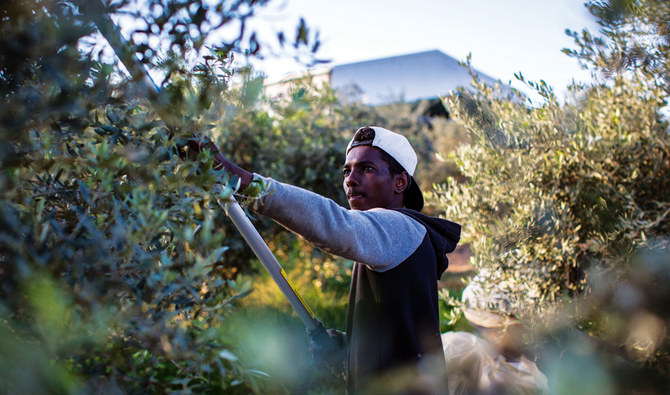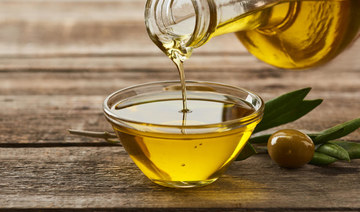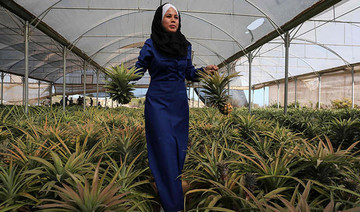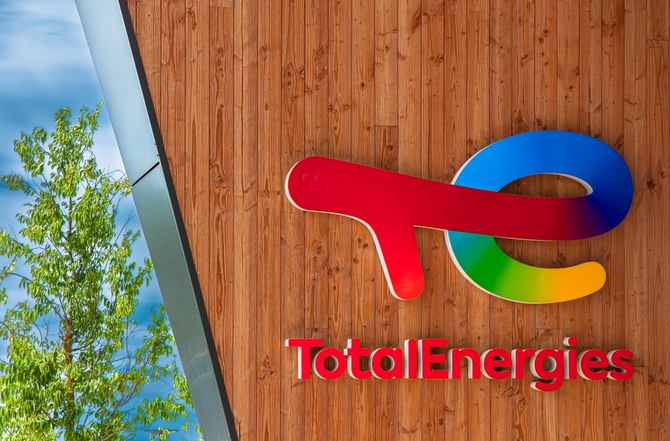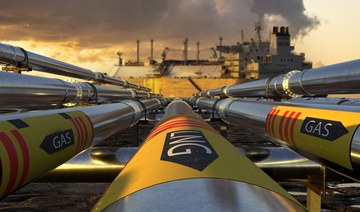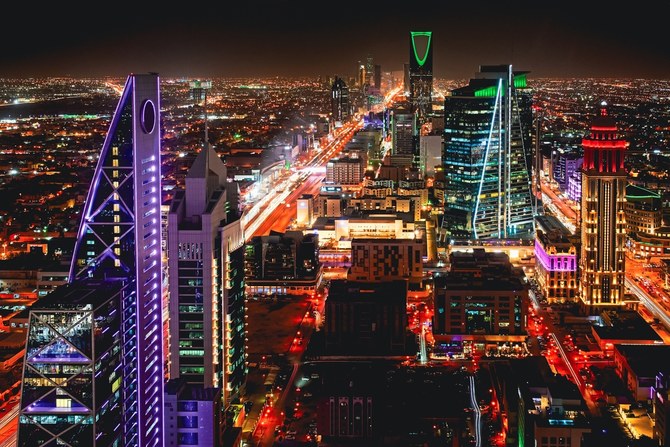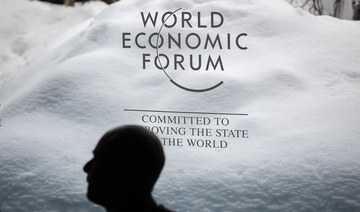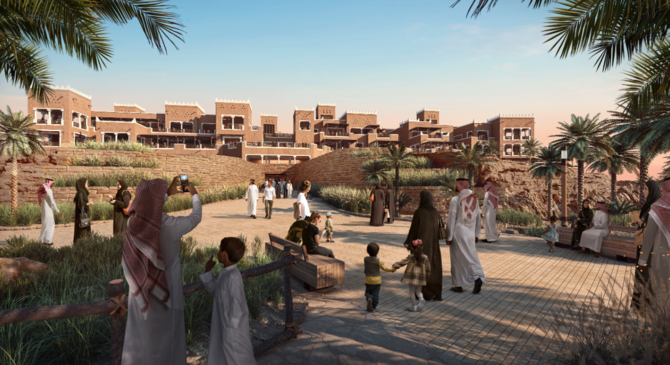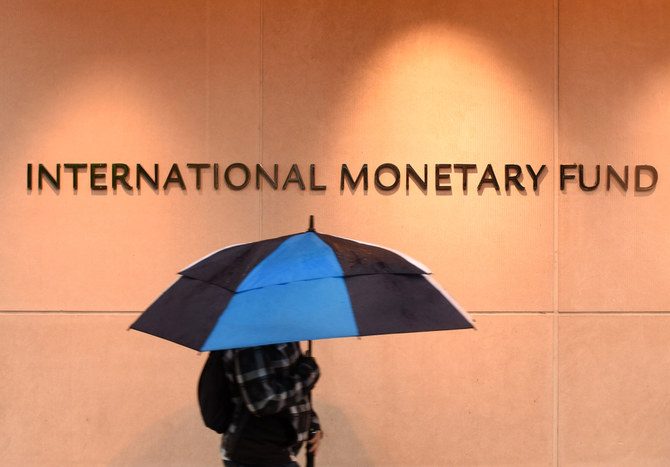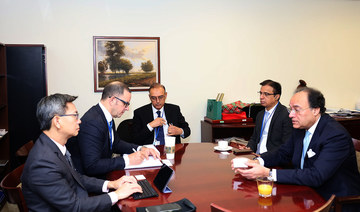NICOSIA: In a field bathed in winter light, Hasan Siber patiently harvests his olives. It is a common sight in Cyprus, but his “oil for peace” represents a rare glimmer of hope on the divided Mediterranean island.
Turkish-Cypriot Siber’s oil is to be sold via Coliveoil, a start-up that he founded with his Greek-Cypriot friend Alexandros Philippides.
The pair, in their early 30s, who met at university in London, want to “take the peace process forward” by selling oil from both sides of the island.
“You never know where an entrepreneurial adventure and friendship might lead,” said Philippides.
Based in the buffer zone of Nicosia, the last divided capital in Europe, Coliveoil is a rare example of a start-up bringing together the island’s two communities.
Cyprus has been split since 1974, when the Turkish army invaded and occupied the northern third following a coup aimed at incorporating the island into Greece.
Reunification talks have been suspended since 2017 — but that same year, Siber and Philippides set up their company that same year with the aim to building bridges across the divide.
The project has enthused Siber’s family, some of whom fled the south during years of conflict.
“Working here today fills me with hope,” said Ayhen Eminel, Siber’s retired uncle, who himself tried to set up a bi-communal business in the early 200s but faced rejection by Greek Cypriot authorities.
He uses a rake to pick olives in a sunlit grove owned by Greek Cypriots, in the formerly mixed village of Agios Ioannis.
The septuagenarian, who speaks Greek as well as Turkish, recalls fleeing the Paphos area in southwestern Cyprus after having been a prisoner of war.
Siber’s aunt Sidika Hudaoglu, a primary school teacher in her 50s, said that the project has brought back memories of a childhood spent among the olive groves in the island’s south, which she fled in 1974.
And the entrepreneur’s father Turgut, a 65-year-old cardiologist, has invested in his son’s start-up and has come from Istanbul to support it.
“Working together, it’s the start” of living together, he said.
“I think others will follow . . . It sets an example.”
While bi-communal projects enjoy some support among Cypriots, this one faces several obstacles.
Without a legal framework for registering bi-communal enterprises, Coliveoil has two legal entities, two bank accounts, two phone numbers and two addresses — one of each on each side of the divide.
The company in the south must buy from the one in the north in order to export to the EU.
Complicating the export process is the fact that EU laws are not applied in the self-declared Turkish Republic of Northern Cyprus (TRNC), only recognized by Ankara.
Olives harvested in the TRNC can’t be registered as organic by the EU, even though the pair say that all the olive groves they use are.
“We have to bring down these barriers,” Siber said.
On the northern side of the checkpoint, Siber and Philippides examine olive groves in Meric, a village surrounded by hills bearing a huge Turkish flag visible for miles across the buffer zone.
When they first took olives into the south in 2017, customs officers asked them to clean the northern olives for export to the south, they recall, even though nothing in the European regulations indicates this.
Resolving the Cyprus problem would more than double the island’s overall gross domestic product to €17.4 billion ($19 billion) over 20 years, according to a study by the Peace Research Institute Oslo Cyprus Center (PCC).
But since a summit in Switzerland collapsed in July 2017, there has been no movement in UN-sponsored negotiations for the divided Mediterranean island.
Yet Coliveoil worker Cemre Berk said that she feels she is an active part of the peace process for the first time.
“We’re breaking taboos,” the Turkish-Cypriot said. “The more people get used to seeing Turkish-Cypriots working on the Greek side and vice versa, the more normal it will become.”
Many Turkish Cypriots express regret the outcome of a referendum on a UN reunification plan in 2004 — the year the divided island entered the EU.
Turkish Cypriots accepted the plan, but Greek Cypriots voted it down.
Coliveoil gives 10 percent of its profits to “Home for cooperation,” which houses the start-up in the buffer zone of Nicosia alongside pro-reunificationNGOs.
Jammed between the low checkpoint walls, Coliveoil works with duo CyprusInno, which connects entrepreneurs from both sides of the island.
Such initiatives still attract stigma, says Steven Stavrou, one of CyprusInno’s cofounders, who met his business partner online.
Burak Berk Doluay was the first Turkish-Cypriot he had ever met.
They started their digital platform in 2013 during the country’s economic crisis, and they now count 2,600 members. “It has changed our lives,” said Stavrou, who was also a witness at his associate’s wedding.
“By coming together through business, sometimes things go beyond that.”




